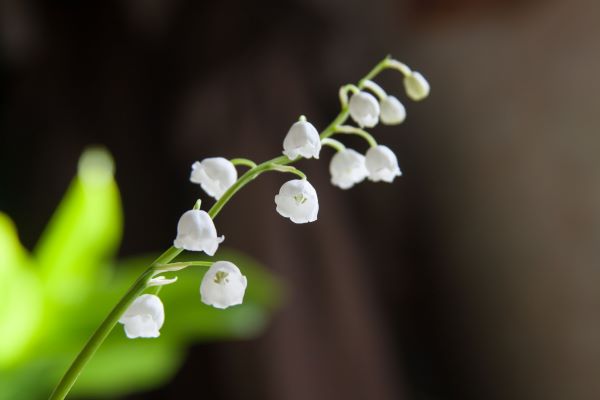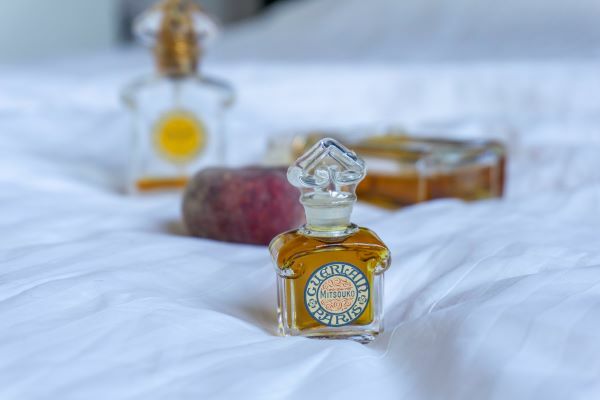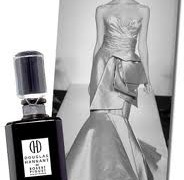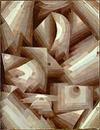A consequence of the popularity of Middle Eastern style fragrances and the need to understand the local market is that the big companies are seeking to hire perfumers of Middle Eastern origin. Firmenich is currently looking:
“We are thinking of recruiting a perfumer from the GCC countries: an Emirati perfumer, a Saudi perfumer or an Omani perfumer,” said Firmenich general manager Louis Lecoeur. “We want someone with the culture of oils and fragrances who we could train to follow the practices of perfumers today.”
More via thenational.ae
















22 Comments
Radhika: What about Indian market? July 31, 2012 at 11:41am
Victoria: Not sure, Radhika. The Indian market for perfumes is pretty much dominated by the local producers anyway. July 31, 2012 at 3:51pm
Daisy: Is anyone else a little offended by this? Middle Eastern origin does not by default make one more receptive to Middle Eastern styles nor does it make someone a more qualified job candidate!
For example, I’m a food blogger of Chinese descent, but I am pretty ignorant of Asian food. I want to learn more, but my training was French.
Wouldn’t it be much more preferable to choose a qualified candidate regardless of ethnic background and let them explore what Firmenich interprets as Middle Eastern? Because what Firmenich might be expecting might be very different from reality. July 31, 2012 at 2:59pm
Daisy: If there is a reality. Maybe this resonates with me in a more personal way, but it just sounds like an exercise in stereotyping. July 31, 2012 at 3:01pm
Victoria: The fragrance industry is so dominated by French perfumers that I welcome any call for diversity. From what I understand, the company is looking for a perfumer already with some experience. So, not just a person from Oman or Saudi Arabia to train, but an actual working perfumer with a knowledge of that market. It’s mostly because Firmenich wants to understand the Middle Eastern market better.
Otherwise, yes, it would be exactly as you say, a stereotype. July 31, 2012 at 3:54pm
Ariadne: I look forward to more diverse scent ‘sentiments’ too. The US market seems so geared towards “quick hit” perfumes for the under twenty set that offer little complexity and do not hold anyone’s attention for more than a few weeks. Recently my usually tutti-fruity smelling daughter flipped for my Bulgari Blu Notte and went home with my full bottle.
It seems to me that perfumes that evoke the imagination & inspire story telling as they unfold always prevail. Perhaps the Middle Eastern myths & legends need retelling and they are searching for a narrator nose. I am listening! July 31, 2012 at 6:58pm
Victoria: She has a great taste! Not surprising given all of your influence. 🙂 August 2, 2012 at 3:30pm
Kurt: Just came back from a visit to Israel and bought some interesting scents in the souk: a dark musk, and oud, a jasmine, tuberose and a nice blend from Saudi Arabia. August 1, 2012 at 6:23am
Victoria: Hope that you had a great trip. August 2, 2012 at 3:34pm
Lynn Morgan: I have to admit, the idea of Middle Eastern fragrances appeals to me, albeit on a sterotypical level: I imagine something dry, sometjing musky. something dark and resinous, because I watch way too much History Channel and I keep seeing that Egyptian archeologist opening tombs. Still, it’s a compelling idea- doesn’t Serge Lutens live and work in Morocco? Desert roses, dried apricots, almonds, mint… all very sexy. There is a niche company that calls itself Nocturne Academy that makes perfume oils that are all inspired by ancinet Egypt…. Nefertiri, Isis, etc. I have never tried them, though. August 1, 2012 at 6:28pm
Victoria: During my travels in the Middle East, I’ve discovered that all of those stereotypical scents I was imagining were actually used quite widely–oud, rosewater, cardamom, etc.
Serge Lutens has a gorgeous house in Morocco. I’ve seen the photos, and it looks like a fairy tale place. August 2, 2012 at 3:38pm
Daisy: Ooooh! I would love to see photos of that! I wonder how it smells . . . gorgeous, I bet. August 2, 2012 at 3:56pm
Victoria: I had the worst camera during those trips, so here is one rather unimpressive looking photo from a perfume shop.
Daisy: Aw! I still love the look of all those bottles though. Perfume bottles can be such a beautifully effective design element in architecture. I wish they were used as such more often . . .
I once traveled with a bad camera. It was a super glitchy tiny thing that bought for its size more than for the quality of its photos. One month in Argentina and the high altitude just finished it off (who would have thought that would affect it).
I made sure to have a better camera the following trip! August 2, 2012 at 4:10pm
Victoria: I really wish I took a better photo! The store was beautiful, and this dark picture doesn’t do it justice. I agree that the perfume bottles are lovely. The Middle Eastern ones are so ornate too! August 2, 2012 at 4:28pm
Daisy: Like food, presentation counts too!
I have to admit I am a sucker for a hefty wine bottle with a classy label too 🙂 August 2, 2012 at 5:00pm
Victoria: With fragrance, the presentation is very important, because it should convey something about the scent, the story that the brand is trying to tell. Back in the day, perfumers actually worked with the bottle designers to be sure that the scent matched the bottle. Today it doesn’t happen this way at all! August 3, 2012 at 8:40am
Martyn: I know little about Middle Eastern perfumes, but I remember my mother having on her dressing table two large and decorative jars, with heavy stoppers and bright exotic labels, one called Phul Nana and the other Shem el Nessim. They were filled with tiny yellow or pink cachous (tablets), and they tasted divine. And she had much smaller perfume bottles containing the same or similar fragrances.
A couple of years ago, on British TV, there was a programme discussing the different sides of the fragrance business. Cases studied included the marketing of “Axe” in the New World, the application of fragrances in household cleaning products, and the development by a London-based, middle-aged husband-and-wife team of a range of Middle-East-inspired perfumes. I can’t remember the name of the range, I’m afraid. But I do recall they managed to place it in Harrods.
On a separate note, from what I’ve read perfume in the Middle East is not separated into “masculine” and “feminine” – and to an extent this is borne out by what you say about J-C Ellena’s Un Jardin sur le Nil: “I would also note that this fragrance is composed to blur masculine/feminine divisions, without being a typically conventional androgynous creation.” August 2, 2012 at 6:03am
Victoria: Men and women wear pretty much the same thing: rose, oud. There is nothing like noticing a tall, mustached man smelling of roses!
Your mom’s vanity table sounds like it was full of fascinating things. I had to look up cachous (little bonbons). August 2, 2012 at 4:03pm
Martyn: “… full of fascinating things”
//laughing// It certainly was! And I wish you could get those little bonbons today. The nearest I could find in the sweet-shop are Parma Violets – but those are way too sweet to eat lots of!
I’ve remembered the name of the case study I wrote about yesterday, by the way: Grossmith. I think they had revived an old trademark that had been in their family for several generations but had fallen out of use in recent years. August 3, 2012 at 8:40am
Ariadne: I have seen quite a lot of hand blown glass & gilded perfume bottles in US gift shops that were made in Egypt. They look like miniature Minarets! August 2, 2012 at 8:32pm
Victoria: I like that you can pick your own bottle and then fill it with the perfume of your choice. There are stores in NYC around Atlantic Avenue that offer this option too. August 3, 2012 at 8:43am